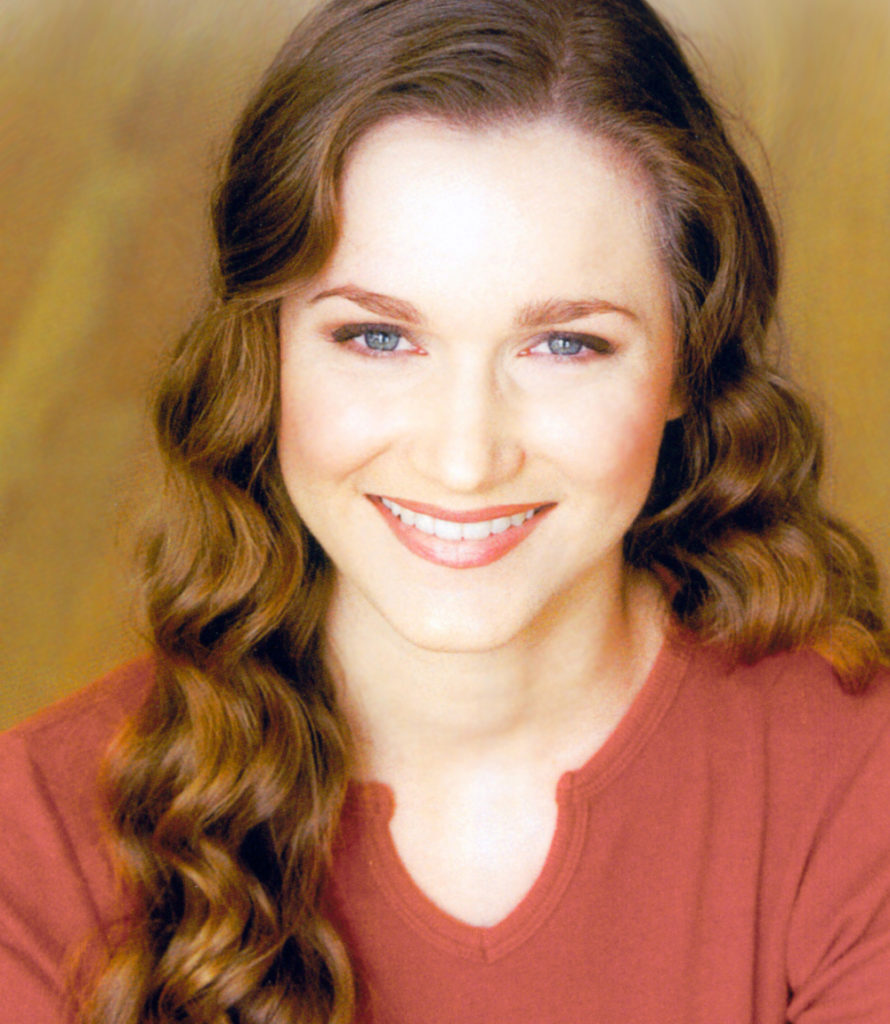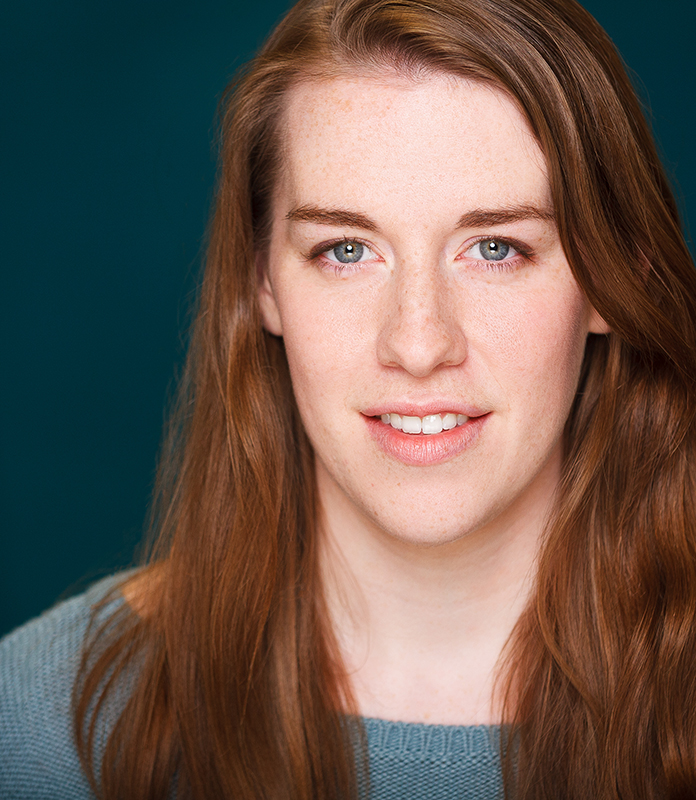As FlagShakes’ last show of the season prepares to take the stage this Friday, we wanted to hear from the powerhouse women behind the roles of traditionally-male players.
We know you’ll love hearing from them as they’ve put tons of work and intention behind making this an incredible storytelling experience for you. We sat down with Katherine Stewart, who is playing Prospero and Cadence Lamb, who is playing Ariel to learn more.

What has been your favorite role with FlagShakes?
This is my first opportunity to work with FlagShakes, so my favorite role would be this one! I hope that I’ll have the chance to add more roles in the future.
How does this role compare to others you’ve done?
Prospero is a person with a lot of difficult lived experiences. He has been betrayed by family and made an outcast. He is obsessed with knowledge, and to a very real extent, control. Control was taken from him when his kingdom was usurped, and so the way he tames the island, the spirits, and even the waves show him regaining control of his own existence. I think Prospero is a unique character because he is not acted upon – his struggles happen before the play begins. What we see is his personal Act Five.
Do you have a dream role, Shakespeare or otherwise?
I would give a heck of a lot to play Isabella in Measure For Measure. She’s so beautifully flawed.
What’s your favorite quality of this character? Least favorite?
I love Prospero’s world-weariness. I’m not wild about his temper.
Since these roles have been performed by thousands of people, do you have a new take? What are you hoping to highlight in this production?
Christine has counseled the cast to simply “tell the story.” So my goal is no overt agendas or hot takes, and the audience will take away what speaks most to them.
How important is the relationship between these two characters? How are you tackling that in rehearsals?
The relationship with Prospero and Ariel is interesting because of the dynamic alternates between master/servant and parent/child. Ariel is excitable and flighty, which is a big contrast to Prospero’s deliberate plotting and reflection. Ariel is innocent and unwise; Prospero is embittered and pragmatic. They are two ends of the same scale.
How does FlagShakes’ commitment to original staging practices help you communicate the character?
I can’t think of another company that would do a completely gender-reversed casting of such an iconic show. There just wouldn’t be the opportunity to speak these words. I actually get to say “We are such stuff as dreams are made on” and check it off my bucket list. Amazing!

What has been your favorite role with FlagShakes?
I don’t think I can count Ariel, because I’m still in that process, but he very well may be my new favorite. But for now, I will go with Friar Lawrence in Romeo and Juliet. When I first got my offer, I was sure it was a mistake. I mean, I certainly wouldn’t have figured I’d be playing a middle-aged man anytime soon if ever. But as I started to get to know the character, I realized he and I really do have a lot in common, like our priorities and how we respond to a crisis. That’s something I’ve always admired about Flagshakes. They cast based on inner qualities of the actor before assessing physical attributes, which is why I think this gender-reversed production of The Tempest works!
How does this role compare to others you’ve done?
Ariel is incredibly different from any role I’ve done, mainly because he isn’t human, he’s a spirit. I have reveled in exploring his movement outside of a typical human’s social boundaries. It’s also fun in that he is invisible to most characters for the whole play, which gives me many opportunities to earn the title “tricksy spirit” that Prospero gives me.
Do you have a dream role, Shakespeare or otherwise?
Fortunately, I have already played two of my dream roles: Constance in King John and Princess Winifred in Once Upon a Mattress. But I would certainly play either again in a heartbeat.
What’s your favorite quality of this character? Least favorite?
We have decided that our version of Ariel is solely focused on the present. He is fully encompassed in whatever is right in front of him and nothing else in the universe matters. I wish more people, including myself, had more of this quality. Certainly, not to the extent at which I’ll be playing it, but I do think it’s a reminder to experience and fully invest in your present as it happens, instead of getting caught up in your head. My least favorite attribute is that Ariel has absolutely no ambition. He only stands up for himself once in the play and just follows orders for the rest of it (even though he is clearly the most powerful thing on the island in terms of magic).
Since these roles have been performed by thousands of people, do you have a new take? What are you hoping to highlight in this production?
I have actually never seen a production of The Tempest, whether live or on film. And I don’t plan to until after we close. It’s far more freeing to create the character strictly from the text and who I am without the interpretations of others in my head. That being said, I hope to highlight his sense of focusing on the present and his immersive curiosity and wonder that it seems only children and spirits have ;).
How important is the relationship between these two characters? How are you tackling that in rehearsals?
It was important for us to view the relationship both from an objective perspective as well as from our characters’. Objectively, Prospero is taking advantage of Ariel and using his powers where he could have just immediately set him free. However, when viewed through our characters’ lenses, Ariel is happy to serve a master he views as more moral and loving than his past master. And Prospero enjoys Ariel’s presence beyond just using his powers as a tool. Of course, other productions could choose to highlight other aspects and treat it more like an enslavement, but we chose to play it more like a loving, if slightly not fair, bargain between good friends.
How does FlagShakes’ commitment to original staging practices help you communicate the character?
First of all, this is my second time working with Christine and I am so grateful for it. Her knowledge of how to interpret the text across the whole canon is priceless and hard to come by. As far as staging goes, I have certainly appreciated the freedom I have been given to be amongst the audience and roll around the stage. Flagshakes is always good about including the audience and making them feel a part of the story wherever possible.



